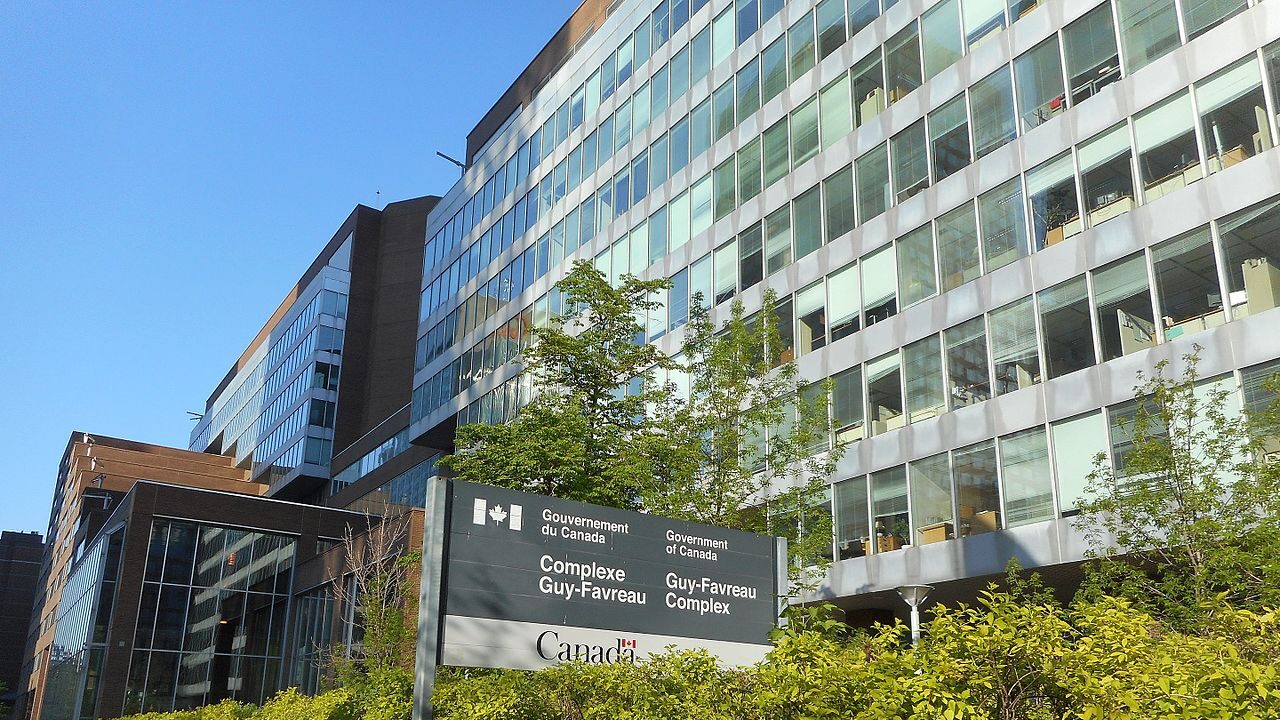On December 18, migrants' rights groups across Canada and beyond organized demonstrations, work stoppages, and press conferences to protest hostile legal and working conditions. The actions were timed to coincide with the International Migrants Day.
In Montreal, dozens of migrants and activists gathered in front of the Complexe Guy-Favreau, which houses several government offices including the Immigration and Refugee Board. The day's theme was "A Day Without Migrants." Messaging at the event focused on the economic role filled by migrants, as well as their precarious living and working conditions.
The Day Without Migrants has almost a 20-year history internationally. Mostafa Henaway, a community organizer with the Immigrant Workers Centre (IWC), explains, "Its history in the United States, a Day Without Immigrants, started with the strike in 2006 and the strike in 2007 by migrant and immigrant workers."
On May 1, 2006, hundreds of thousands of migrant workers and supporters in the United States participated in strikes and demonstrations known as "A Day Without an Immigrant." Those actions happened in the context of a nearly two-year protest movement against reforms that created harsher legal punishments for undocumented migrants in the country.
In Canada, this year's actions come at a particularly uncertain time for immigrants in Canada. In September, the Liberal Party introduced federal policy changes that could threaten the status of tens of thousands of temporary foreign workers. In late October, the federal government announced massive cuts to the number of permanent residencies it will accept in the next three years.
For Henaway, the government's capricious stance on immigration is a last-ditch attempt by the Liberals to regain some popularity among a voter base whose living conditions are deteriorating:
"Exactly a year ago [Immigration Minister Marc Miller] announced in the Globe and Mail there's going to be a mass comprehensive regularization program. One year later, his announcement is talking about border security. [...] So, all of these cuts came into place once the Liberal Party realized they stopped being popular and it looked like Trump was going to win."

A common struggle for Canadians and migrants
Amy Darwish, a tenant organizer with the Comité d’Action de Parc-Extension, points out that migrants are particularly affected by the cost of living crisis for which they are often blamed.
"Actually, undocumented people deal with the brunt of the housing crisis more acutely than anyone else," she said. Darwish cited housing discrimination, lack of access to social housing and the tendancy of undocumented workers to avoid bringing legal cases against abusive landlords for fear of deportation. "In many ways, [migrants] are very much on the front lines of all of these struggles that everyone is experiencing," she said.
Henaway agrees: "When they're fighting in poor, working-class neighborhoods like Parc Extension for better housing and the right to social housing, it affects everybody. And who's exploiting immigrant, migrant workers are the same people that are profiting from inflation."
Henaway emphasizes that Canadian workers and migrant workers have a great deal of concerns in common:
"What migrant and immigrant workers are fighting for, they're fighting for the whole class. They're fighting in places like Amazon. They're fighting bad jobs that have high turnover and low pay. That's a class issue, it's not an immigrant issue."
Henaway would like to see greater unity between trade unions and migrant advocates.
"I think there needs to be a basic solidarity in terms of challenging the anti-migrant discourse within the labour movement. That's our first key. Second is building migrant worker organizations and their capacity to fight within the workplace."
Because workers who are neither citizens nor permanent residents cannot vote, Henaway underlines, "The power of Migrants is economic, and if they had the support of the unions, they could try to exercise that."
- Temporary Work Permits Encourage Slavery, Says UN
- “Modern slavery” in Canada, a reality largely neglected by governments
- Letter: “The solution is not to weaken the rights of temporary foreign workers”
- A Protest Against “Modern Slavery” in Front of Labour Minister’s Office
- “The liberals are throwing us away”
- “The power of migrants is economic”
- Immigrant Workers’ Encampment Comes to an End: “We Will Come Back Stronger”


